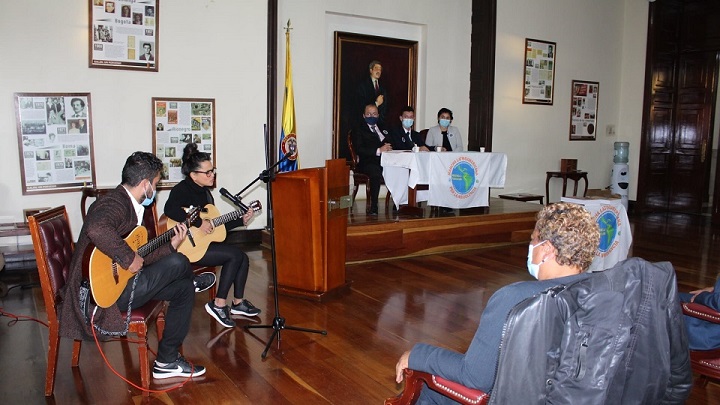Presentation of the Latin American March and the book Interpretations of Humanism
In the Congress of the Republic of Colombia, the presentation of the First Latin American March for Nonviolence and the presentation of the book Historical Interpretations of Humanism, by Salvatore Puledda, took place.
In the prologue, written by Mikhail Gorbachev on 30/10/94, he speaks of the content of the book and its author as follows:
“You hold in your hands a book that cannot fail to make you think. Not only because it is devoted to the eternal theme of humanism, but also because, having placed this theme in historical frameworks, it allows you to feel and understand that this is a real challenge of our time.
The author of the book, Dr. Salvatore Puledda, rightly underlines that humanism in its three aspects: as a general concept, as a set of specific ideas and as an inspiring action, has a very long and complicated history. As he writes, its history has been similar to the movement of the waves: sometimes humanism came to the fore, to the historical proscenium of humanity, sometimes it “disappeared” at some point.
At times, it was relegated to the background by forces that Mario Rodríguez Cobos (Silo) rightly describes as “anti-humanist”. In those periods, it was brutally misrepresented. The same anti-humanist forces often put on the humanist mask to act under its cover and, in the name of humanism, realised their dark intentions”.
Likewise, they described the keys to the 1st Latin American March, specifying as described in the article A March for Nonviolence travels through Latin America:
“We aspire that by touring the region and strengthening Latin American unity we rebuild our common history, in the search for convergence in diversity and Nonviolence.
The vast majority of human beings do not want violence, but eliminating it seems impossible. That is why we understand that in addition to carrying out social actions, we have to work to revise the beliefs that surround this supposedly unchangeable reality. We have to strengthen our inner faith that we can change, as individuals and as a society.
It is time to connect, mobilise and march for nonviolence.






